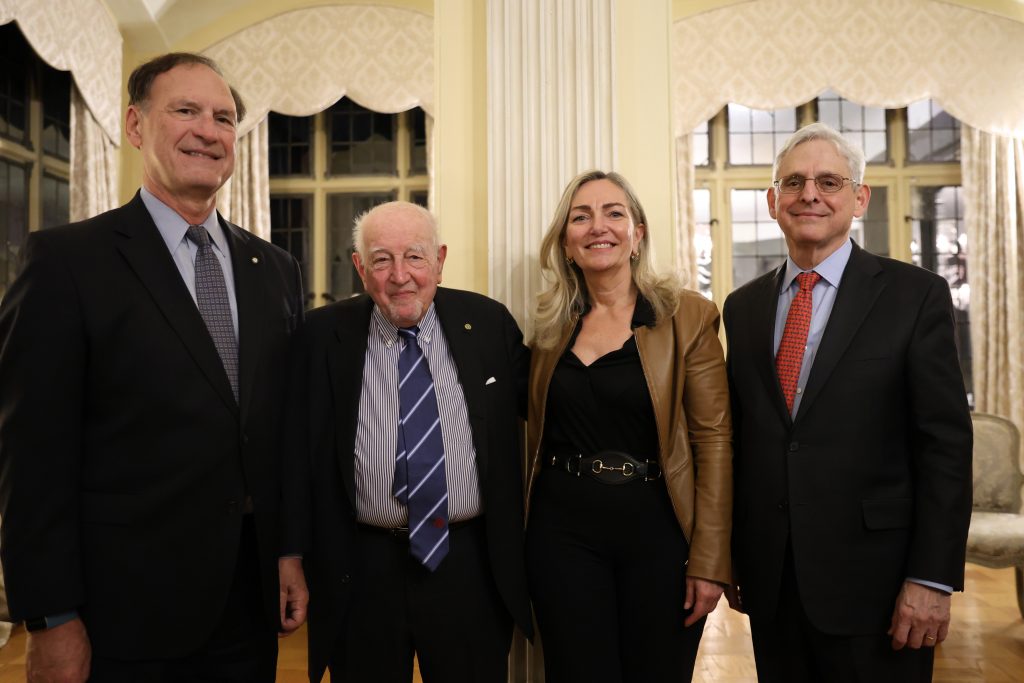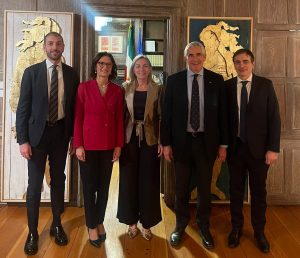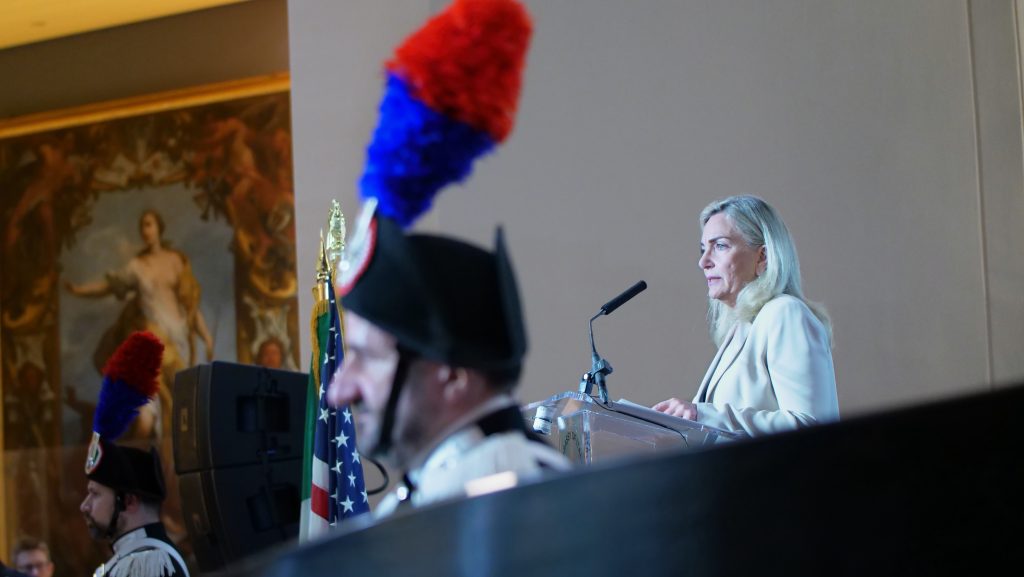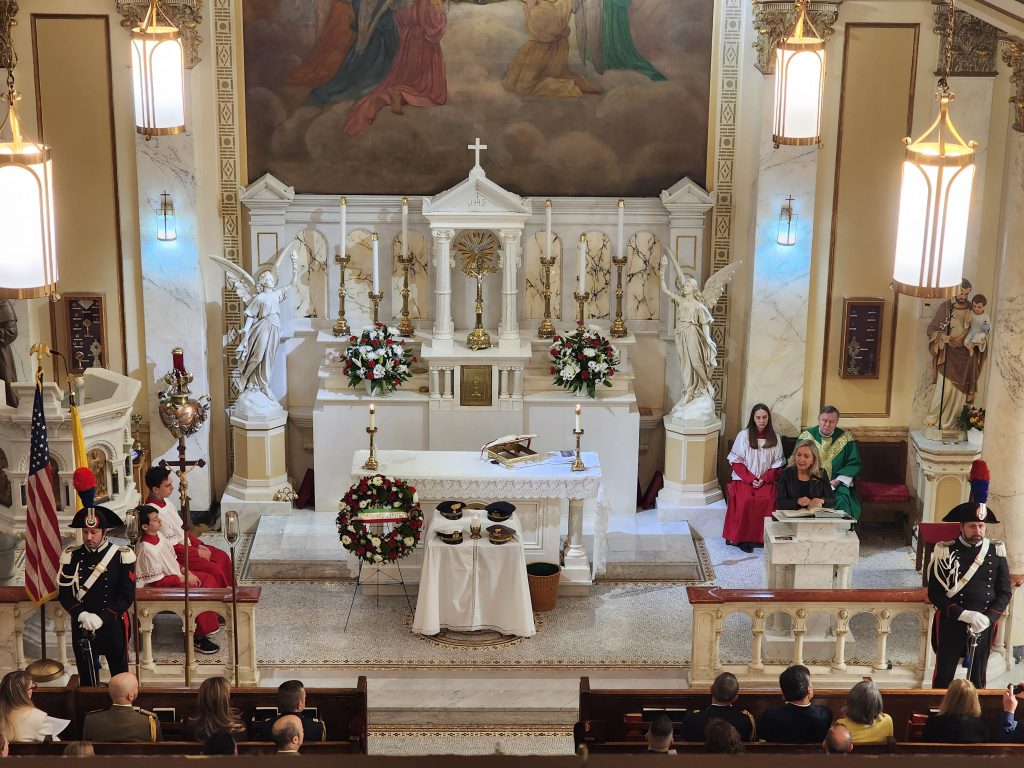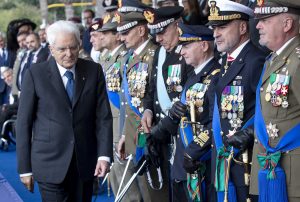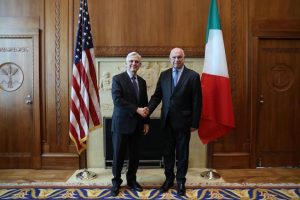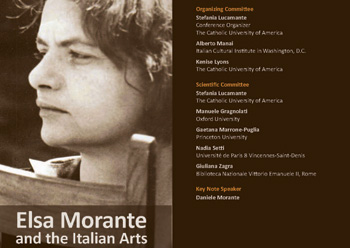
Elsa Morante

This three-day academic conference to be held at Catholic University, aims to shed new light on Elsa Morante’s influence during her time (eg. her collaborations with Pier Paolo Pasolini) and on her artistic/literary legacy in a celebration of the one-hundredth anniversary of her birth.
“Morante’s contribution connects the Italian novelistic tradition to international currents far beyond modernism and the influence of American writers in postwar Italy. She pioneered many a dramatic change in rhetoric and style. The merits of this famous Roman writer will be explored by scholars who have a passion for Morante’s work, and new critical elements of her writing will be unearthed and celebrated,” says Conference organizer, Professor Stefania Lucamante.
The Roman author pioneered many a dramatic change in rhetoric and style later seen in the work of Fabrizia Ramondino, Patrizia Cavalli, Carmelo Samonà, Simona Vinci, Elena Ferrante among many artists of our time. While Morante’s influence does not define a clear literary path that would define the elements of a proper Morantian ‘school,’ it seems unquestionable that her rich style suffuses the pages of many Italian contemporary novels.
Indeed, Morante’s works are often quoted in films as a source of inspiration for the characters, as Cristina Comencini’s filmic texts show. Also Morante’s prophetic and critical sides still need to be fully acknowledged and explored. In this light, many of her prophecies need to be analyzed or rethought against the backdrop of our times: the true meaning of the atomic bomb (1965 Turin speech), the postwar rise of an Italian lower-middle bourgeoisie unwittingly complacent with capitalism, the fate of youth, and the idea of intellectual and esthetic commitment seen as political engagement. Morante touches upon many important issues still prevalent in today’s Italian society: outcasts, the disenfranchised, powerless creatures like the ghettaroli (the Roman Jews) of the Roman Round-up of 1943, children and women.
In this respect, she is similar to her close friend and artistic companion Pier Paolo Pasolini, with whom she also a shares a position of eccentricity —and of resistance. To this end, a part of the conference will be dedicated to her original relationship with Pasolini and their reflections on controversial concepts as smagamento (disillusionment), barbarie (the barbaric), irrealtà (unreality), grazia (grace), and the world of ragazzini (youth) as objects of desire and carriers of salvation.
In accordance with Morante’s beliefs, this conference also aims at creating an intergenerational collaboration, engaging established and emerging scholars in a constructive dialogue.
The Davy Carozza InternationalConference will be held at Catholic University, October 25-27, 2012. Morante’s nephew Daniele Morante will deliver the keynote address, “Elsa Morante’s Correspondence: a New Source for the Artist’s Life,” on Oct. 26 at 5 p.m.
Among the confirmed speakers are: R. Scott Carlson, Lorenzo Salvagni, Sarah Carey, Maria Morelli, Katrin Wehling-Giorgi, Eleanor Holdridge, Flavia Cartoni, Claudia Karagoz, Kenise Lyons, Thomas Harrison, Hanna Serkowska, Giovanna De Luca, Manuele Gragnolati, Nadia Setti, Francesca Cadel, Gaetana Marrone-Puglia.
Carozza was a distinguished scholar and professor of Italian and Romance languages at Catholic University for many years. In order to preserve his legacy, his family set up a fund to foster the teaching and studying of Romance languages.
